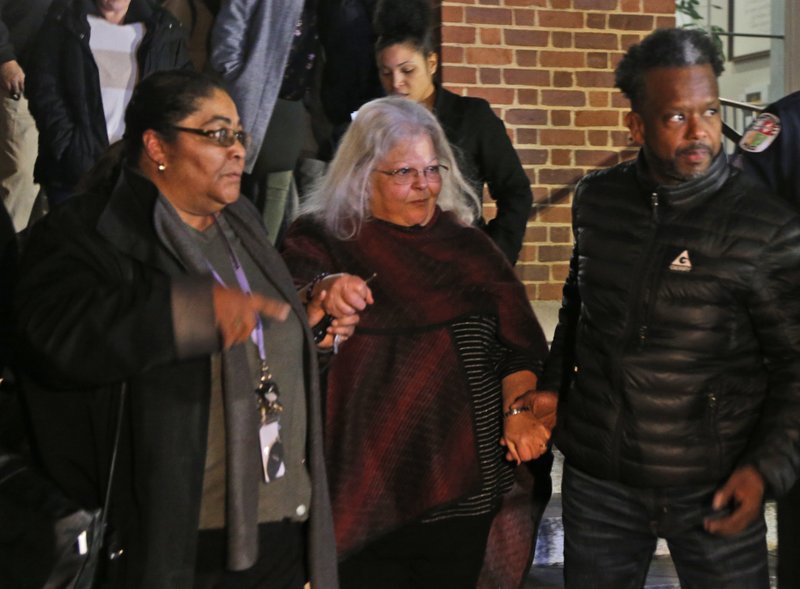CHARLOTTESVILLE, Va. -- Victims described their physical pain and psychological trauma while defense attorneys detailed their client's history of mental illness Monday to a jury deliberating a sentence for the man who drove his car into counterprotesters at a white nationalist rally.
James Alex Fields Jr. faces up to life in prison for the death of Heather Heyer and injuries he caused to dozens of other counterprotesters.
Fields' lawyers argued that he acted in self-defense and out of fear.
Prosecutors called Heyer's mother and several people who were severely injured to testify about the impact his crimes had on them. Heyer, 32, was a paralegal and a civil-rights activist.
"She was full of love, she was full of justice, she was full of fairness, and Mr. Fields tried to silence that with his car, but I refuse to allow that," said Susan Bro, Heyer's mother.
The jury on Friday convicted Fields of first-degree murder and other charges for ramming his car into a crowd in Charlottesville during a "Unite the Right" rally on Aug. 12, 2017.
The jury began deliberating a sentencing recommendation about 3:15 p.m. Monday. Judge Richard Moore will formally sentence Fields. Judges in Virginia often impose the sentence recommended by juries.
Under the law, the jury can recommend from 20 years to life in prison on the first-degree murder charge and each of five charges of aggravated malicious wounding.
He also faces five to 20 years on three counts of malicious wounding, and up to 10 years on one count of leaving the scene of an accident.
Bro said her daughter's death has been like an "an explosion in our family. We are forever scarred by the pain," she said.
Jeanne "Star" Peterson said her life has been "a living nightmare" since she was hit by Fields' car. Her right leg was shattered, and she has had five surgeries to try to repair it. She also suffered a broken spine and still hasn't been able to return to work.
"I will be dealing with the aftermath of Fields' choices for the rest of my life," Peterson said.
Fields, 21, drove to Virginia from his home in Maumee, Ohio, to support the white nationalists. After the rally, as a large group of counterprotesters marched through Charlottesville singing and laughing, he stopped his car, backed up, then sped into the crowd, according to testimony from witnesses and video surveillance shown to jurors.
Wednesday Bowie, a counterprotester who got caught on the trunk of Fields' car when he backed up and was then slammed into a parked truck and thrown to the ground, told the jury that in addition to a broken pelvis and other physical injuries, she has been hospitalized three times for post-traumatic stress disorder over the past year.
She told the jury, "Please know that the world is not a safe place with Mr. Fields in it."
Testifying for the defense, University of Virginia School of Medicine professor and psychologist Daniel Murrie told the jury that while Fields was not legally insane at the time of the incident, he has a long history of mental health issues.
Fields had inexplicable volatile outbursts as a young child and was diagnosed with bipolar disorder at age 6, Murrie said. He was later diagnosed with schizoid personality disorder.
Murrie said Fields went off his psychiatric medication at age 18 and built an isolated "lifestyle centered around being alone."
A video of Fields shown to the jury during the first phase of the trial showed him sobbing and hyperventilating after he was told a woman had died and others were seriously injured.
Fields' lawyer Denise Lunsford called him a "mentally compromised individual" and urged the jury to consider his long history of mental health issues when deliberating on a sentence.
Prosecutors told the jury during his trial that Fields was angry after witnessing violent clashes between the two sides earlier in the day. The violence prompted police to shut down the rally before it even officially began.
Fields is eligible for the death penalty if convicted of separate federal hate-crime charges. No trial has been scheduled yet.
A Section on 12/11/2018
